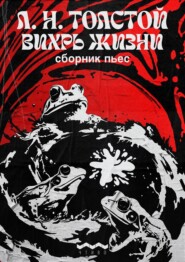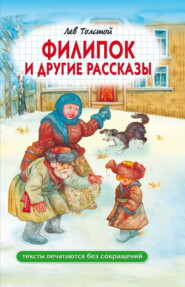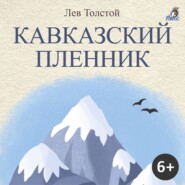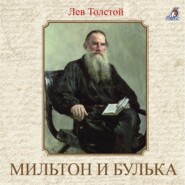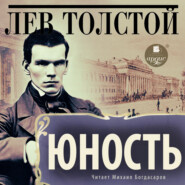По всем вопросам обращайтесь на: info@litportal.ru
(©) 2003-2025.
✖
What Shall We Do?
Настройки чтения
Размер шрифта
Высота строк
Поля
This feeling, which I fancied I had not deserved, and which came over me quite unexpectedly, impressed me particularly, because it was so long since I had felt anything like it and also because I fancied that I, an old man, had been living in a way I had no reason to be ashamed of.
This surprised me greatly. I related the case to my family, to my acquaintances, and they all agreed that they also would have felt the same. And I began to reflect: Why is it that I felt so?
The answer came from a case which had formerly occurred to me in Moscow. I reflected upon this case, and I understood the shame which I felt concerning the incident with the cook's wife, and all the sensations of shame I had experienced during my charitable activity in Moscow, and which I always feel when I happen to give anything beyond trifling alms to beggars and pilgrims, which I am accustomed to give, and which I consider not as charity, but as politeness and good breeding. If a man asks you for a light, you must light a match if you have it. If a man begs for three or twenty kopeks, or a few rubles, you must give if you have them. It is a question of politeness, not of charity.
The following is the case I referred to. I have already spoken about the two peasants with whom I sawed wood three years ago. One Saturday evening, in the twilight, I was walking with them back to town. They were going to their master to receive their wages. On crossing the Dragomilor bridge we met an old man. He begged, and I gave him twenty kopeks. I gave, thinking what a good impression my alms would make upon Simon, with whom I had been speaking on religious questions.
Simon, the peasant from Vladímir, who had a wife and two children in Moscow, also stopped, turned up the lappet of his kaftan, and took out his purse; and, after having looked over his money, he picked out a three-kopek piece, gave it to the old man, and asked for two kopeks back. The old man showed him in his hand two three-kopek pieces and a single kopek. Simon looked at it, was about to take one kopek, but, changing his mind, took off his cap, crossed himself, and went away, leaving the old man the three-kopek piece.
I was acquainted with all Simon's pecuniary circumstances. He had neither house nor other property. When he gave the old man the three kopeks, he possessed six rubles and fifty kopeks, which he had been saving up, and this was all the capital he had.
My property amounted to about six hundred thousand rubles. I had a wife and children, so also had Simon. He was younger than I, and had not so many children; but his children were young, and two of mine were grown-up men, old enough to work, so that our circumstances, independently of our property, were alike, though even in this respect I was better off than he.
He gave three kopeks, I gave twenty. What was, then, the difference in our gifts? What should I have given in order to do as he had done? He had six hundred kopeks; out of these he gave one, and then another two. I had six hundred thousand rubles. In order to give as much as Simon gave, I ought to have given three thousand rubles, and asked the man to give me back two thousand; and, in the event of his not having change, to leave him these two also, cross myself, and go away calmly, conversing about how people live in the manufactories, and what is the price of liver in the Smolensk market.
I thought about it at the time, but it was long before I was able to draw from this case the conclusion which inevitably follows from it. This conclusion appears to be so uncommon and strange, notwithstanding its mathematical accuracy, that it requires time to get accustomed to it. One is inclined to think there is some mistake, but there is none. It is only the terrible darkness of prejudice in which we live.
This conclusion, when I arrived at it and recognized its inevitableness, explained to me the nature of my feelings of shame in the presence of the cook's wife, and before all the poor to whom I gave and still give money. Indeed, what is that money which I give to the poor, and which the cook's wife thought I was giving her? In the majority of cases it forms such a minute part of my income that it cannot be expressed in a fraction comprehensible to Simon or to a cook's wife, – it is in most cases a millionth part or thereabout. I give so little that my gift is not, and cannot be, a sacrifice to me: it is only a something with which I amuse myself when and how it pleases me. And this was indeed how my cook's wife had understood me. If I gave a stranger in the street a ruble or twenty kopeks, why should I not give her also a ruble? To her, such a distribution of money is the same thing as a gentleman throwing gingerbread nuts into a crowd. It is the amusement of people who possess much “fool's money.” I was ashamed, because the mistake of the cook's wife showed me plainly what ideas she and all poor people must have of me. “He is throwing away ‘fool's money’”; that is, money not earned by him.
And, indeed, what is my money, and how did I come by it? One part of it I collected in the shape of rent for my land, which I had inherited from my father. The peasant sold his last sheep or cow in order to pay it.
Another part of my money I received from the books I had written. If my books are harmful, and yet sell, they can only do so by some seductive attraction, and the money which I receive for them is badly earned money; but if my books are useful, the thing is still worse. I do not give them to people, but say, “Give me so many rubles, and I will sell them to you.”
As in the former case a peasant sells his last sheep, here a poor student or a teacher does it: each poor person who buys denies himself some necessary thing in order to give me this money. And now that I have gathered much of such money what am I to do with it? I take it to town, give it to the poor only when they satisfy all my fancies and come to town to clean pavements, lamps, or boots, to work for me in the factories, and so on. And with this money I draw from them all I can. I try to give them as little as I can and take from them as much as possible.
Now, quite unexpectedly, I begin to share all this said money with these same poor persons for nothing; but not with everyone, only as fancy prompts me. And why should not every poor man expect that his turn might come to-day to be one of those with whom I amuse myself by giving them my “fool's money”?
So everyone regards me as the cook's wife did. And I had gone about with the notion that this was charity, – this taking away thousands with one hand, and with the other throwing kopeks to those I select!
No wonder I was ashamed. But before I can begin to do good I must leave off the evil and put myself in a position in which I should cease to cause it. But all my course of life is evil. If I were to give away a hundred thousand, I should not yet have put myself in a condition in which I could do good, because I have still five hundred thousand left.
It is only when I possess nothing at all that I shall be able to do a little good; such as, for instance, the poor prostitute did who nursed a sick woman and her child for three days. Yet this seemed to me to be but so little! And I ventured to think of doing good! One thing only was true, which I at first felt on seeing the hungry and cold people outside Liapin's house, – that I was guilty of that; and that to live as I did was impossible, utterly impossible. What shall we do then? If somebody still needs an answer to this question, I will, by God's permission, give one, in detail.
CHAPTER XVI
It was hard for me to own this; but when I had got so far I was terrified at the delusion in which I had been living. I had been head over ears in the mud myself, and yet I had been trying to drag others out of it.
What is it that I really want? I want to do good; I want to contrive so that no human beings shall be hungry and cold, and that men may live as it is proper for them to live. I desire this; and I see that in consequence of all sorts of violence, extortions, and various expedients in which I too take part, the working people are deprived of the necessary things, and the non-working community, to whom I also belong, monopolize the labour of others. I see that this use of other people's labour is distributed thus: That the more cunning and complicated the devices employed by the man himself (or by those from whom he has inherited his property), the more largely he employs the labours of other people, and the less he works himself.
First come the millionaires; then the wealthy bankers, merchants, land-owners, government officials; then the smaller bankers, merchants, government officials and land-owners, to whom I belong too; then shopmen, publicans, usurers, police sergeants and inspectors, teachers, sacristans, clerks; then, again, house-porters, footmen, coachmen, water-carters, cabmen, pedlers; and then, last of all, the workmen, factory hands and peasants, the number of this class in proportion to the former being as ten to one.
I see that the lives of nine-tenths of the working people essentially require exertion and labour, like every other natural mode of living; but that, in consequence of the devices by which the necessaries of life are taken away from these people, their lives become every year more difficult, and more beset with privations; and our lives, the lives of the non-labouring community, owing to the co-operation of sciences and arts which have this very end in view, become every year more sumptuous, more attractive and secure.
I see that in our days the life of a labouring man, and especially the lives of the old people, women, and children of the working-classes, are quite worn away by increased labour out of proportion to their nourishment, and that even the very first necessaries of life are not secured for them. I see that side by side with these the lives of the non-labouring class, to which I belong, are each year more and more filled up with superfluities and luxury, and are becoming continually more secure. The lives of the wealthy have reached that degree of security of which in olden times men only dreamed in fairy-tales, to the condition of the owner of the magic purse with the “inexhaustible ruble”; to a state where a man not only is entirely free from the law of labour for the sustenance of his life, but has the possibility of enjoying all the goods of this life without working, and of bequeathing to his children, or to anyone he chooses, this purse with the “inexhaustible ruble.”
I see that the results of the labour of men pass over more than ever from the masses of labourers to those of the non-labourers; that the pyramid of the social structure is, as it were, being rebuilt, so that the stones of the foundation pass to the top, and the rapidity of this passage increases in a kind of geometric progression.
I see that there is going on something like what would take place in an ant-hill if the society of ants should lose the sense of the general law, and some of them were to take the results of labour out of the foundations and carry them to the top of the hill, making the foundation narrower and narrower and thus enlarging the top, and so by that means cause their fellows to pass also from the foundation to the top.
I see that instead of the ideal of a laborious life, men have created the ideal of the purse with the “inexhaustible ruble.” The rich, I among their number, arrange this ruble for themselves by various devices; and in order to enjoy it we locate ourselves in towns, in a place where nothing is produced but everything is swallowed up.
The poor labouring man, swindled so that the rich may have this magic ruble, follows them to town; and there he also has recourse to tricks, either arranging matters so that he may work little and enjoy much (thus making the condition of other workingmen still more heavy), or, not having attained this state, he ruins himself and drifts into the continually and rapidly increasing number of cold and hungry tenants of doss-houses.
I belong to the class of those men who by means of these various devices take away from the working people the necessaries of life, and who thus, as it were, create for themselves the inexhaustible fairy ruble which tempts in turn these unfortunate ones.
I wish to help men; and therefore it is clear that first of all I ought on the one side to cease to plunder them as I am doing now, and on the other to leave off tempting them. But by means of most complicated, cunning, and wicked contrivances practised for centuries, I have made myself the owner of this ruble; that is, have got into a condition where, never doing anything myself, I can compel hundreds and thousands of people to work for me, and I am really availing myself of this privileged monopoly notwithstanding that all the time I imagine I pity these men and wish to help them.
I sit on the neck of a man, and having quite crushed him down compel him to carry me and will not alight from off his shoulders, though I assure myself and others that I am very sorry for him and wish to ease his condition by every means in my power – except by getting off his back.
Surely this is plain. If I wish to help the poor, that is, to make the poor cease to be poor, I ought not to create the poor. Yet I give money capriciously to those who have gone astray, and take away tens of rubles from men who have not yet become bad, thereby making them poor and at the same time depraved.
This is very clear; but it was exceedingly difficult for me to understand at first, without some modification or reserve which would justify my position. However as soon as I come to see my own error, all that formerly appeared strange, complicated, clouded, and inexplicable, became quite simple and intelligible; but the important matter was, that the direction of my life indicated by this explanation, became at once, simple, clear, and agreeable, instead of being, as formerly, intricate, incomprehensible, and painful.
Who am I, I thought, that desire to better men's condition? I say I desire this, and yet I do not get up till noon, after having played cards in a brilliantly lighted saloon all night, – I, an enfeebled and effeminate man requiring the help and services of hundreds of people, I come to help them! to help these men who rise at five, sleep on boards, feed on cabbage and bread, understand how to plough, to reap, to put a handle to an axe, to hew, to harness horses, to sew; men who, by their strength and perseverance and skill and self-restraint are a hundred times stronger than I who come to help them.
What could I experience in my intercourse with these people but shame? The weakest of them, a drunkard, an inhabitant of Rzhanoff's house, he whom they call “the sluggard,” is a hundred times more laborious than I; his balance, so to say, – in other words the relation between what he takes from men and what he gives to them, – is a thousand times more to his credit than mine when I count what I receive from others and what I give them in return. And such men I go to assist!
I go to help the poor. But of the two who is the poorer? No one is poorer than myself. I am a weak, good-for-nothing parasite who can only exist under very peculiar conditions, can live only when thousands of people labour to support this life which is not useful to anyone. And I, this very caterpillar which eats up the leaves of a tree, I wish to help the growth and the health of the tree and to cure it!
All my life is spent thus: I eat, talk, and listen; then I eat, write, or read, which are only talking and listening in another form; I eat again, and play; then eat, talk, and listen, and finally eat and go to sleep: and thus every day is spent; I neither do anything else nor understand how to do it. And in order that I may enjoy this life it is necessary that from morning till night house-porters, dvorniks, cooks (male and female), footmen, coachmen, and laundresses, should work; to say nothing of the manual labour necessary so that the coachmen, cooks, footmen, and others may have the instruments and articles by which and upon which they work for me, – axes, casks, brushes, dishes, furniture, glasses, shoe-black, kerosene, hay, wood, and food. All these men and women work hard all the day and every day in order that I may talk, eat, and sleep. And I, this useless man, imagined I was able to benefit the very people who were serving me! That I did not benefit any one and that I was ashamed of myself, is not so strange as the fact that such a foolish idea ever came into my mind.
The woman who nursed the sick old man helped him; the peasant's wife, who cut a slice of her bread earned by herself, from the very sowing of the corn that made it, helped the hungry one; Simon, who gave three kopeks which he had earned, assisted the pilgrim, because these three kopeks really represented his labour; but I had served nobody, worked for no one, and knew very well that my money did not represent my labour.
And so I felt that in money, or in money's worth, and in the possession of it, there was something wrong and evil; that the money itself, and the fact of my having it, was one of the chief causes of those evils which I had seen before me; and I asked myself, What is money?
CHAPTER XVII
Money! Then what is money?
It is answered, money represents labour. I meet educated people who even assert that money represents labour performed by those who possess it. I confess that I myself formerly shared this opinion, although I did not very clearly understand it. But now it became necessary for me to learn thoroughly what money is.
In order to do so, I addressed myself to science. Science says that money in itself is neither unjust nor pernicious; that money is the natural result of the conditions of social life, and is indispensable, first, for convenience of exchange; secondly, as a measure of value; thirdly, for saving; and fourthly, for payments.
The fact that when I have in my pocket three rubles to spare, which I am not in need of, I have only to whistle and in every civilized town I can obtain a hundred people ready for these three rubles to do the worst, most disgusting, and humiliating act I require, it is said, comes not from money, but from the very complicated conditions of the economical life of nations!
The dominion of one man over others does not come from money, but from the circumstance that a workingman does not receive the full value of his labour; and the fact that he does not get the full value of his labour depends upon the nature of capital, rent, and wages, and upon complicated connections between the distribution and consumption of wealth.
In plain language, it means that people who have money may twist round their finger those who have none. But science says that this is an illusion; that in every kind of production three factors take part, – land, savings of labour (capital), and labour, and that the dominion of the few over the many proceeds from the various connections between these factors of production, because the two first factors, land and capital, are not in the hands of working people; and from this fact and from the various combinations which result from it this domination proceeds.
Whence comes the great power of money, which strikes us all with a sense of its injustice and cruelty? Why is one man, by the means of money, to have dominion over others? Science says, “It comes from the division of the factors of production, and from the consequent combinations which oppress the worker.”
This answer has always appeared to me to be strange, not only because it leaves one part of the question unnoticed (namely, the significance of money), but also because of the division of the factors of production, which to an unprejudiced man will always appear artificial and out of touch with reality. Science asserts that in every production three agents come into operation, – land, capital and labour; and along with this division it is understood that property (or its value in money) is naturally divided among those who possess one of these agents; thus, rent (the value of the ground) belongs to the land-owner; interest belongs to the capitalist; and wages to the worker.
Is this really so?
First, is it true that in every production only three agencies operate? Now, while I am writing proceeds the production of hay around me. Of what is this production composed? I am told of the land which produces the grass; of capital (scythes, rakes, pitch-forks, carts which are necessary for the housing of the hay); and of labour. But I see that this is not true. Besides the land, there is the sun and rain; and, in addition, social order, which has been keeping these meadows from any damage which might be caused by letting stray cattle graze upon them, the skill of workmen, their knowledge of language, and many other agencies of production, – which, for some unknown reason, are not taken into consideration by political economy.
The power of the sun is as necessary as the land, even more. I may mention the instances when men (in a town, for example), assume the right to keep out the sun from others by means of walls or trees. Why, then, is the sun not included among the factors of production?






